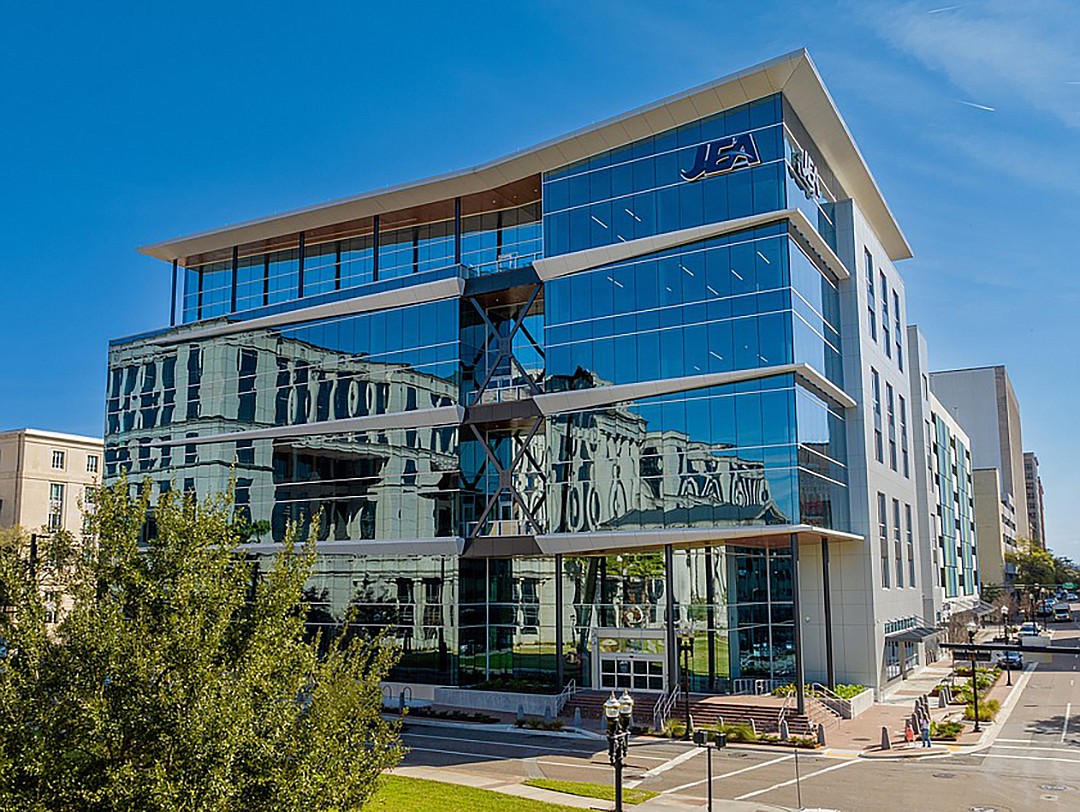
The JEA board of directors approved a $1.95 billion electric and water systems operating budget June 27 that anticipates a midyear base rate increase for electric customers.
JEA Director of Budgets Laure Whitmer presented an overview of the budget to the board that shows JEA will need a 3.75% increase in revenue for its electric system, driven primarily by JEA’s cost to buy power from the Waynesboro, Georgia, nuclear Plant Vogtle.
JEA, the city-owned utility, projected the need for a base rate increase over the next three years to keep up with those revenue needs.
Some may pay less
Managing Director and CEO Jay Stowe told news reporters after the meeting that falling fuel costs could result in lower customer bills despite the rate increase.
He said that increase will not be the same for every JEA electric user.
“It’s not a flat 3.75(%) to everybody. We’ll have to work on the details of that between now and April,” Stowe said.
“In the meantime, we have reduced fuel costs. So the overall cost for our customers is actually decreasing over the next year,” he said.
Residential water rates flat
The budget keeps residential water rates and commercial district energy chilled water rates flat.
Before any rate increase can take effect, the board will have to notice and hold a public hearing followed by a vote separate from the overall budget approval. According to Stowe, that likely increase won’t happen until early to mid-2024.
Multiyear rate strategy
The rate increase was not unexpected and is part of JEA’s multiyear strategy to counter rising electric system expenses.
In February, the basic monthly charge portion of an average residential bill increased from $5.50 per month to $15.
According to Whitmer’s report, $197.2 million of JEA’s $245 million nonfuel purchased power are expenses related to JEA’s 20-year agreement with Municipal Electric Authority of Georgia to buy power from Vogtle.
Whitmer said JEA withdrew $15 million from its rate stabilization fund to “slightly” offset that expense.
Although Plant Vogtle Unit 3 was supposed to be operational and transmitting electricity by the end of June, MEAG and Georgia Power told JEA that date was pushed to the end of July.
Unit 4 is not expected to come online until 2024.
Despite revenue challenges, JEA’s $1.33 billion electric budget is about a $186.8 million decrease from the system’s budget in fiscal year 2022-23, which officials say is almost exclusively because of dropping fuel costs to produce electricity.
Fuel and purchased power is the electric system’s largest expense at $446 million, according to JEA budget data.
Whitmer told board member John Baker that excess revenue from the past two years was set aside to prepare for withdraws expected from 2024 through 2028, knowing JEA’s Vogtle expense would begin to increase.
“We put some of the funds into that reserve fund so that we could not have to have such large rate increases, Stowe said. “It’s a glide path over the next several years.”
JEA’s nonfuel purchase power expense in 2021 was about $65 million, or $180 million less.
Water budget
The utility’s water system operating budget for the 2022-23 fiscal year is $613 million. That includes $220 million for its capital program and the utility expects to issue $352.6 million in new debt.
Officials said June 27 that a primary driver of that is capital projects needed to comply with new rules set by the Florida State Senate Bill 64 in 2021 that requires wastewater utilities to submit a plan to the Department of Environmental Protection to eliminate nonbeneficial surface water discharge.
JEA officials want to meet the requirements by 2030, which Stowe said will take further capital investments.
More for city
JEA projects a 1% increase in its budget to the utility’s annual contribution to the city’s general fund. That’s up to $124.6 million, according to Stowe. JEA contributed $122.42 million to the city in the 2022-23 fiscal year.
City Council will have to sign off on JEA’s budget as part of its annual budget process in September.